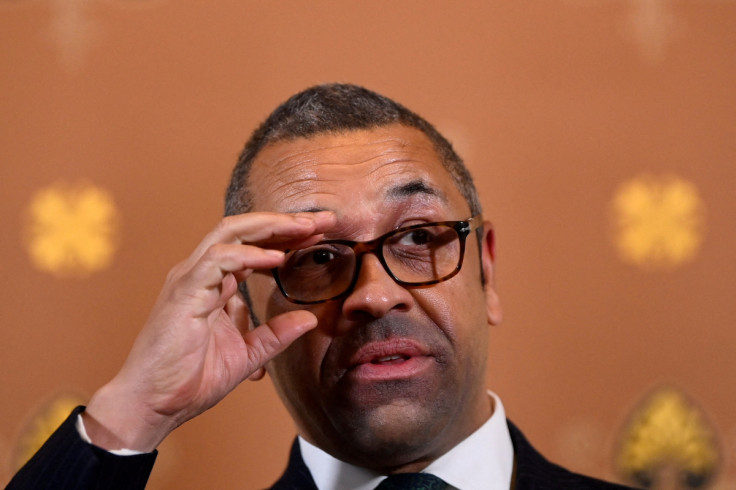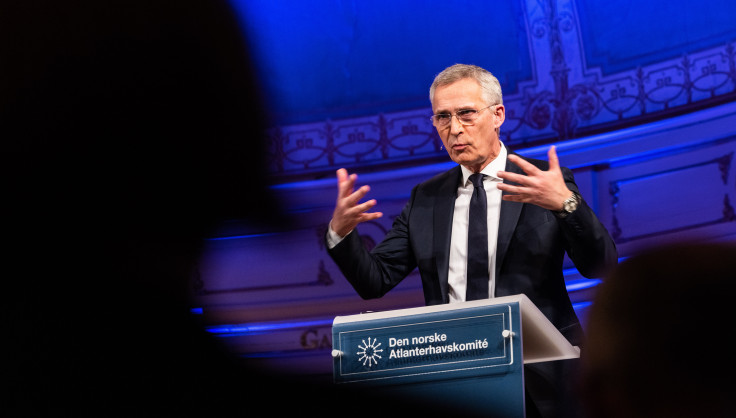British Foreign Secretary visits Estonia to demonstrate commitment to NATO
Ahead of his attendance at a meeting of NATO Foreign Ministers in Oslo, Norway, British Foreign Secretary James Cleverly has observed British armed forces in NATO exercises in Estonia.

As the war between Russia and Ukraine persists, the eastern flank of NATO territory which borders Russia is a key strategic focus of the Atlantic security alliance. NATO identifies Russia as "the most significant and direct" security threat to its members and also to "peace and stability in the Euro-Atlantic area."
The ability of NATO to deter aggression from Russia towards its eastern members is contingent on a demonstrable "military presence" in the region. Accordingly, NATO has staged military exercises in Estonia to demonstrate its military capacity across its eastern flank.
Estonia shares a border with Russia and joined NATO in 2004 in one of several waves of post-Cold War NATO enlargement. Following Finland's accession to NATO which doubles the length of its eastern border with Russia, Arctic military manoeuvres have also taken place involving the United States.
In light of the strategic importance of NATO's eastern flank, British Foreign Secretary James Cleverly has further highlighted Britain's commitment to NATO through his first visit to Estonia as Foreign Secretary. Back in March, the Foreign Secretary visited Moldova, Georgia and Kazakhstan who also share a border with Russia.
The Foreign Secretary's visit comes ahead of the July NATO Summit in Vilnius, Lithuania. According to NATO General Secretary Jens Stoltenberg, agreements on "detailed plans" which set out measures to defend NATO members will be made at the summit. These will establish the military capabilities required of each member to fulfil these plans.
However, in the meantime, with the intention of highlighting Britain's commitment as a "steadfast security partner", Cleverly has met officials of Estonia's new government, articulating Britain's commitment to the protection of NATO allies in the event of a crisis.
In terms of military capabilities, the Foreign Secretary observed RAF Typhoons as part of Britain's lead in Baltic air policing at the Amari air base. Cleverly also observed multi-national exercises supported by British Army Apache and Wildcat helicopters.
Cleverly also met with Ukrainian refugees at an Estonian school set up to help those fleeing the war in Ukraine. A total of more than 46,000 refugees have been taken by Estonia since the outbreak of the war. Moreover, according to the UNHCR, a minimum of 4.8 million refugees have been recorded throughout Europe.
However, the Foreign Secretary's trip to Northern Europe has not been exclusive to Estonia. Today on the 31st of May, the Foreign Secretary met his fellow NATO Foreign Ministers in Oslo, Norway, at an informal meeting lasting from to the 1st of June.
On behalf of the British government, Cleverly will call for the "swift" accession of Sweden to NATO. Back in July 2022, both Sweden and Finland completed accession talks. Whilst Sweden is yet to complete the accession process, Finland became an official NATO in April this year. Prior to accession, Sweden has been a close partner of NATO for decades.
Cleverly will articulate to his fellow NATO Foreign Ministers that Sweden's full membership of NATO increases the "collective strength" of the alliance. However, this is perhaps contingent on the ability of NATO forces to defend a larger set of geographical territories spanning more of the European continent.

All of this begs the question of why? Sceptics might say that a combination of NATO's expansion and the exercise of its military capabilities on its eastern flank near Russian borders will merely provoke greater diplomatic and geopolitical tension.
However, NATO Secretary General Jens Stoltenberg has stressed the importance of action to ensure international security. Referring to the pivotal nature of the current international moment, he has claimed that "what we choose to do and choose not to do now will determine what the world will look like for decades to come."
These comments were made yesterday on the 30th of May, as the NATO Secretary General also stated that "President Putin's war of aggression against Ukraine marks the end of the world as we knew it." Similarly, in the build-up to the recent 2023 G7 Summit in Hiroshima, the Prime Minister of Japan also referred to the "historic turning point" that the international community currently faces.
Whilst the future of Ukraine and relations between Russia and the West remain uncertain, NATO's commitment to Ukraine and Eastern Europe is clear. On NATO membership, Stoltenberg stated that "NATO's door is open" and that "everyone agrees that Ukraine will become a member." Crucially, the NATO Secretary General highlighted that NATO's primary purpose right now is to ensure that Ukraine prevails in the ongoing conflict with Russia.
© Copyright IBTimes 2025. All rights reserved.





















